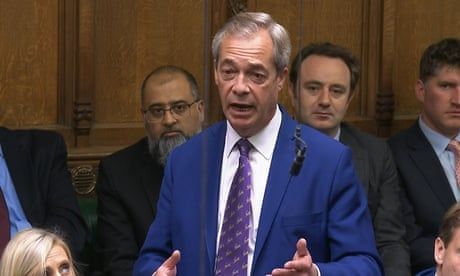
Reform UK leader says he was told Diego Garcia was ‘most important island on planet’ by senior adviser to new president
Wes Streeting has now delivered his speech to the NHS Providers conference in Liverpool, and it is being described as a potential turning point in his time as health secretary. Here is a verdict from Shaun Lintern, the Sunday Times’ health editor.
Bullish, specific. Streeting is beginning to move from era of “reviews” to actual starting to direct the NHS on what Govt wants
Wes Streeting at @NHSProviders conference gives a clear message and mission for ICBs and ICB leaders - you are a strategic commissioner and will lead the transformation to neighbourhood care Very good news to have a clear mission
Streeting said the NHS was too hierarchical. As the Telegraph reports, he said:
The NHS in 2024 is more hierarchical than almost any other organisation that I can think of. Even our armed forces … are less locked and centralised into command and control.
Streeting said that he wanted to give local managers more freedom but that he would take back power if they were underperforming.
If performance dips I reserve the right to take those freedoms away and for those judged to be persistently failing, we will act, going from zero consequences for failure to zero tolerance.
He said that he wanted a culture of honesty in the NHS, and that a culture that that “stifles inconvenient truths … ultimately puts patient safety at risk”.
He criticised the health thintanks that have complained about the settlement for health in the budget.
He said the NHS had been living on borrowed time.
The NHS is already living on borrowed time and if a Labour government can’t improve the NHS then it simply won’t survive.
But if we get this right we can look back on our time with pride and say we were the generation that took the NHS from the worst crisis in its history, got it back on its feet and made it fit for the future.
He said the 10-year plan for the NHS would be published in May.
Analysis by i a month ago, when the idea was being debated only in principle, found 54 per cent of MPs currently expressing a degree of support for the legislation, while 35 per cent were opposed and 11 per cent were undecided.
But since the bill was published this week more MPs are expressing their doubts about the legislation, with many citing the concern that although private members’ bills are subject to the same stages as any other legislation, less time is allocated to them in parliament, meaning they are often discussed in significantly less detail before a vote …
Continue reading...